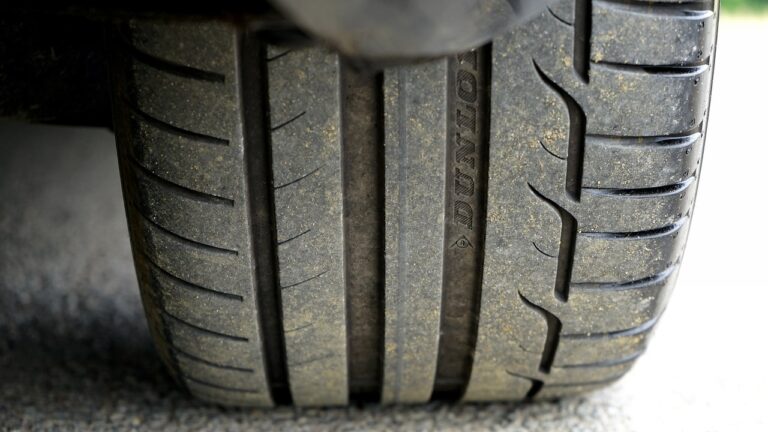Promoting Circular Economy Principles in Auto Recycling Policy Development: 11xplay online id, Diamondexch9 login, Sky exchange registration
11xplay online id, diamondexch9 login, sky exchange registration: Promoting Circular Economy Principles in Auto Recycling Policy Development
In recent years, there has been a growing emphasis on promoting circular economy principles in various industries, including auto recycling. Circular economy is an economic system aimed at eliminating waste and the continual use of resources, in contrast to the traditional linear economy of take, make, dispose. This shift towards a circular economy in auto recycling can have numerous benefits, such as reducing environmental impact, conserving natural resources, and stimulating economic growth.
As the automotive industry continues to grow, so does the need for proper recycling and disposal of end-of-life vehicles. In this article, we will discuss the importance of promoting circular economy principles in auto recycling policy development and how it can positively impact both the environment and the economy.
The Need for Circular Economy Principles in Auto Recycling
The automotive industry is one of the largest sectors in the world, with millions of vehicles being produced and sold each year. As a result, the number of end-of-life vehicles is also increasing, leading to significant environmental challenges. The traditional approach to auto recycling has been focused on the linear economy model, where vehicles are disposed of after their useful life, leading to a high amount of waste and environmental pollution.
By promoting circular economy principles in auto recycling, we can shift towards a more sustainable approach that focuses on reusing, remanufacturing, and recycling materials to create a closed-loop system. This can help reduce the environmental impact of end-of-life vehicles, conserve resources, and create new economic opportunities within the auto recycling industry.
Benefits of Circular Economy Principles in Auto Recycling
There are numerous benefits to promoting circular economy principles in auto recycling policy development. Some of the key advantages include:
1. Environmental Impact: By reusing and recycling materials from end-of-life vehicles, we can reduce the amount of waste going to landfills and minimize the environmental impact of auto recycling.
2. Resource Conservation: Circular economy principles promote the idea of using resources more efficiently and effectively, leading to a reduction in the consumption of natural resources.
3. Economic Growth: Shifting towards a circular economy in auto recycling can create new economic opportunities, such as the development of innovative recycling technologies and job creation in the recycling industry.
4. Energy Savings: Recycling and reusing materials from end-of-life vehicles require less energy compared to producing new materials, leading to energy savings and reduced greenhouse gas emissions.
Challenges in Implementing Circular Economy Principles in Auto Recycling
While promoting circular economy principles in auto recycling can have numerous benefits, there are also challenges that need to be addressed. Some of the key challenges include:
1. Lack of Infrastructure: The current auto recycling infrastructure may not be equipped to handle the increased demand for recycling and reusing materials from end-of-life vehicles.
2. Regulatory Barriers: Existing regulations and policies may hinder the implementation of circular economy principles in auto recycling, requiring new policies to be developed and implemented.
3. Consumer Behavior: Changing consumer behavior towards recycling and reusing materials from end-of-life vehicles can be a challenge, as many consumers may not be aware of the benefits of circular economy principles.
4. Technological Limitations: The development of innovative recycling technologies and processes is essential for promoting circular economy principles in auto recycling, requiring investments in research and development.
Policy Recommendations for Promoting Circular Economy Principles in Auto Recycling
To overcome the challenges in implementing circular economy principles in auto recycling, policymakers and stakeholders can consider the following policy recommendations:
1. Develop Incentives: Provide incentives for auto recyclers to adopt circular economy principles, such as tax credits, grants, and subsidies for investing in recycling technologies and infrastructure.
2. Implement Extended Producer Responsibility (EPR): Hold automakers responsible for the disposal and recycling of end-of-life vehicles, promoting sustainable design and material reuse.
3. Enhance Recycling Infrastructure: Invest in developing and expanding auto recycling infrastructure to handle the increased demand for recycling and reusing materials from end-of-life vehicles.
4. Educate Consumers: Raise awareness among consumers about the benefits of circular economy principles in auto recycling, encouraging them to choose sustainable products and support recycling initiatives.
5. Collaborate with Stakeholders: Engage with stakeholders, such as automakers, auto recyclers, government agencies, and environmental organizations, to develop and implement circular economy policies collaboratively.
6. Conduct Research and Development: Invest in research and development initiatives to drive innovation in recycling technologies and processes, promoting the adoption of circular economy principles in auto recycling.
FAQs
Q: What is circular economy in auto recycling?
A: Circular economy in auto recycling is an economic system focused on reusing, remanufacturing, and recycling materials from end-of-life vehicles to create a closed-loop system.
Q: How can circular economy principles benefit auto recycling?
A: Circular economy principles can benefit auto recycling by reducing environmental impact, conserving resources, stimulating economic growth, and saving energy.
Q: What are the challenges in implementing circular economy principles in auto recycling?
A: Challenges in implementing circular economy principles in auto recycling include lack of infrastructure, regulatory barriers, consumer behavior, and technological limitations.
Q: How can policymakers promote circular economy principles in auto recycling?
A: Policymakers can promote circular economy principles in auto recycling by developing incentives, implementing Extended Producer Responsibility (EPR), enhancing recycling infrastructure, educating consumers, collaborating with stakeholders, and investing in research and development.







